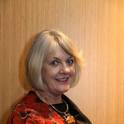This study was undertaken in conjunction with the Successful Integration of Learning Technologies (SILT) Project in Victorian state schools, and its purpose was to identify the forms of teachers' professional practice that enhance knowledge building, in order to inform teacher development policy and pre-service education. Knowledge building is based on a constructivist approach to learning and teaching, and this, in conjunction with the spread of learning technologies, is said to have greatly changed the role of the teacher in the classroom: from the expert dispensing knowledge to the facilitator of student learning. Using an ethnographic approach based particularly on observation and reflective conversation with teacher participants, the study identified current and emerging roles of teachers using computers in their classrooms. Three substantive roles were identified: designing the learning environment, managing people and resources and mediating student learning. A fourth role, improving practice, captures the workplace learning that is recognised by all teachers in this study. Teachers demonstrated these interdependent roles to varying extents, individually and, in some cases, collaboratively. There were hints of specialisation that could lead to a future separation of roles, or aspects of roles. By recording single instances of emerging practices as well as the more frequent occurrences, the findings indicated a range of characteristics pertaining to each role, presented as a framework, which can inform teacher education and lifelong learning. In turn, these were considered in light of Wenger's (1998) theory of communities of practice, in terms of individual classrooms and of schools as constellations of communities. Knowledge-building teachers were members of deep and strong local communities whose task was co-constructing knowledge. They recognised that technology could be used for consumption, (re)production and creation purposes, and they used open frameworks as structures, which allowed students to explore and construct knowledge. They also acted as brokers, crossing boundaries to communicate with other communities. Technology was a medium for this communication, and a means of managing and storing knowledge objects. This study suggests that teachers will become more involved in shaping their roles if they have space to reflect on current practice and to become more familiar with the frameworks, tools and resources available to them. Professional development strategies need to recognise workplace learning and to encourage teachers to make explicit their tacit knowledge, intertwining theory and practice and making new connections. The responsibility for this lies with teachers and their schools and systems, where structures and cultures will need to change to meet shared purposes within communities of practice, and to look outward to the wider society. Links between theory and practice will be enhanced by teacher-researcher partnerships that cross the boundary of practice and research, thereby connecting communities of practice.
- ICT,
- Professional development,
- Teachers,
- Teacher role,
- Workplace learning,
- Technology,
- Knowledge development
Available at: http://works.bepress.com/elizabeth_hartnell-young/45/
